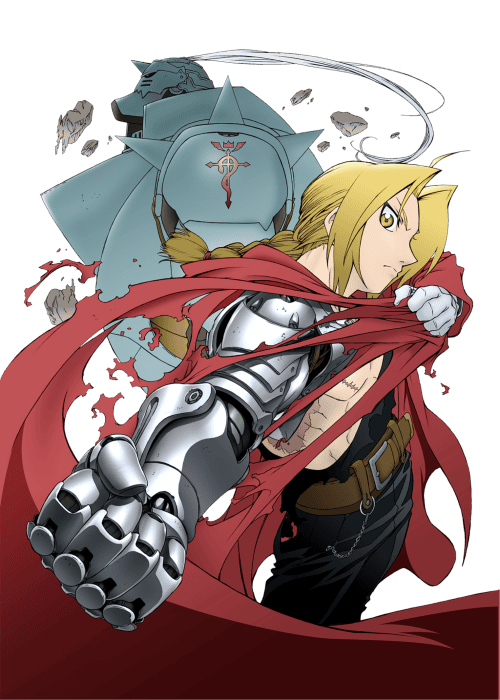10 Financial Lessons You Can Learn from Anime Characters reveals how iconic heroes like Naruto, Luffy, and Goku teach smart money habits, budgeting, saving, investing, and resilience for real-life financial success.
Anime may be filled with battles, adventures, heartwarming friendships, and jaw-dropping transformations, but hidden beneath all the drama and action lies a surprising amount of wisdom about money.

From self-discipline to knowing the value of teamwork, anime characters often embody lessons we can apply in everyday life—including financial literacy.
Money management doesn’t always come from textbooks and financial gurus; sometimes, it comes disguised in the quirks of our favorite anime characters.
Whether it’s learning how to invest wisely, control debt, or simply live frugally, anime fans can discover golden nuggets of insight from the universes of shonen heroes, clever strategists, and even mischievous villains.
In this article, we’ll dive into 10 valuable financial lessons inspired by anime characters, breaking them down into practical insights that apply in real life.
Each lesson draws parallels between iconic moments in anime and smart money practices worth following.
So, grab your calculator—or maybe just a notebook—and prepare to unlock the ultimate anime-inspired money guide.
Here are 10 Financial Lessons You Can Learn from Anime Characters:
Lesson 1: The Value of Saving Early (Naruto Uzumaki – Naruto)
Naruto may have been reckless in his early years, but if there’s one lesson his journey teaches us, it’s that investing effort consistently, even if it’s small at first, pays off in the long run.
Naruto starts as the underdog, a boy who lacks power, connections, and recognition in society. But he continued training, saving his energy and skills over time, until those small incremental steps led him to become Hokage.

Financially, Naruto illustrates the principle of compound interest. Just as Naruto’s countless hours of practice added up, small savings today grow when left untouched. For example, saving just $100 each month at an average 8% annual interest rate could turn into nearly $150,000 over 30 years.
Naruto didn’t achieve greatness overnight, and neither does wealth. The key insight here is this: start saving early, remain consistent, and allow time to work in your favor. Even if your income feels modest now, what matters most is developing the habit of saving.
Takeaway: Financial growth, like becoming Hokage, comes from persistence, small wins, and patience.
Lesson 2: Don’t Let Greed Consume You (Greed – Fullmetal Alchemist: Brotherhood)
Few anime characters embody financial mistakes better than the Homunculus named Greed. He desires everything—wealth, power, immortality—yet ends up paying the ultimate price for his endless hunger.
His downfall represents what happens when uncontrolled greed dictates your financial decision-making.

In real life, chasing every get-rich-quick scheme or blindly investing in shady opportunities can quickly lead to ruin. Whether it’s hype-driven cryptocurrencies, overpriced NFTs, or scammy investment programs, unrestrained greed clouds judgment.
Instead, financial success requires moderation and control. This doesn’t mean avoiding ambition—it simply means setting realistic goals and knowing when “enough” truly is enough. True wealth often lies in stability and balance, not in relentlessly chasing more.
Takeaway: If greed drives every decision, you may end up losing more than you gain. Be ambitious, but stay grounded with rational, informed choices.
Lesson 3: Invest in Knowledge First (Light Yagami – Death Note)
Light Yagami’s greatest weapon wasn’t just the Death Note—it was his intellect and strategic thinking. Light understood that knowledge is the ultimate currency. He gathered information, studied his opponents, and used foresight before making moves.
In financial matters, too many people rush into investments without proper research. They hear about a “hot stock tip” or a trendy market boom but fail to study the fundamentals.

In contrast, successful investors like Warren Buffett emphasize learning about a business before buying shares.
Anime reminds us through Light that education should always be our first investment. Before purchasing assets, learn how markets work, study financial literacy, and understand the risks of debt. Knowledge compounds like money: the more informed you are, the better your decisions and outcomes.
Takeaway: Before chasing profits, invest time in learning. Knowledge is the best financial weapon you can arm yourself with.
Lesson 4: The Power of Budgeting and Simplicity (Tanjiro Kamado – Demon Slayer)
Tanjiro Kamado doesn’t live in luxury. Instead, he prioritizes his family’s survival, budgeting every resource carefully.
Whether it was managing food, medicine, or travel expenses, Tanjiro epitomizes living within your means while never losing focus on what matters most.

Modern audiences can learn much from Tanjiro’s humility and sense of responsibility. In the financial world, budgeting helps prevent overspending and ensures funds are allocated where they matter—like rent, groceries, healthcare, and savings.
Many young adults today fall into the trap of lifestyle inflation, spending beyond their earnings to keep up with trends. Instead, Tanjiro shows us that simple living combined with clear priorities leads to resilience and long-term success.
Takeaway: Budget wisely and spend with purpose. Financial security often stems from discipline, not extravagance.
Lesson 5: Take Calculated Risks (Monkey D. Luffy – One Piece)
Monkey D. Luffy is one of anime’s boldest characters. He constantly takes risks by challenging stronger foes and venturing into dangerous territories.
Yet, his risks aren’t careless; they are driven by vision—finding the One Piece and becoming Pirate King.

This translates well into financial decision-making. Without risk, you limit your earning potential. Low-risk investments like savings accounts or government bonds provide safety but slow growth.
Higher-risk assets such as stocks, real estate, or entrepreneurship can yield substantial rewards—but they must be calculated, not reckless.
Luffy teaches us that courage mixed with vision creates opportunity. If you want financial freedom, you must sometimes leave your comfort zone, whether that means starting a side hustle, investing in a new market, or building a business.
Takeaway: Avoid reckless gambles, but embrace calculated risks with vision. True financial treasure exists outside your comfort zone.
Lesson 6: Teamwork in Wealth Building (Erza Scarlet – Fairy Tail)
Erza Scarlet embodies discipline, responsibility, and above all, teamwork. In the Fairy Tail guild, she often balances the chaos of her comrades, ensuring everyone works together toward common goals.
Financially speaking, building wealth isn’t always a solo journey. Partnerships, networking, and teamwork can often accelerate results.

For example, joining forces with business partners, sharing resources, or pooling funds with family for investments can help achieve goals faster.
Moreover, teamwork also applies to family finances. Couples that work together on budgeting, investments, and debt management often thrive much more than individuals pulling in different directions.
Takeaway: Like a guild, managing money is easier when goals are shared and trust is established. Collaboration multiplies financial strength.
Lesson 7: Adaptability in Changing Times (Edward Elric – Fullmetal Alchemist)
Edward Elric’s philosophy is heavily shaped by the concept of equivalent exchange: to gain something, something of equal value must be exchanged.
But beyond that, Ed constantly adapts to changing circumstances, whether it’s losing limbs or confronting new enemies.

Financial systems also demand adaptability. Economic downturns, recessions, inflation, and unexpected crises can shake stability. Those who refuse to change often struggle, while those prepared to pivot thrive.
Just like Ed adjusting to mechanical prosthetics, you might need to adapt financially—whether by changing careers, building new income streams, or restructuring expenses. Flexibility is survival.
Takeaway: The world changes constantly. Staying flexible ensures your financial future doesn’t shatter with unexpected events.
Lesson 8: Strategic Debt Management (Levi Ackerman – Attack on Titan)
Levi Ackerman is a master strategist. He knows when to attack aggressively and when to hold back. This balance is a lot like managing debt. Not all debt is evil; sometimes borrowing strategically (student loans, business loans, mortgages) can accelerate growth.

But when handled recklessly—like using credit cards for unnecessary luxuries—debt becomes destructive. Just as Levi weighs the cost of every maneuver, you must weigh interest rates, repayment terms, and long-term consequences before taking loans.
Takeaway: Use debt strategically, as a tool—not a trap. Evaluate the cost and only borrow when it builds your future.
Lesson 9: Investing in Relationships and Social Capital (Izuku Midoriya – My Hero Academia)
Izuku Midoriya (Deku) doesn’t succeed merely because of One for All’s power. His greatest strength lies in the support of mentors, allies, and friends. By building strong relationships, he gains opportunities and insights that propel his growth.

In finance, this concept ties into social capital—the wealth of your network. Networking provides collaborations, mentorship, investment opportunities, and even job referrals. In many cases, who you know plays as big a role as what you know.
Deku’s journey reminds us that beyond money, relationships are assets. A financial plan enriched with connections can yield exponential benefits compared to isolated efforts.
Takeaway: Build and nurture relationships. Sometimes your network can open doors that money alone never could.
Lesson 10: The Importance of Resilience (Son Goku – Dragon Ball Series)
Few anime characters represent resilience like Goku. Knocked down time and time again, he always rises stronger. His ability to train harder after every loss mirrors the financial resilience needed in real life.
You will face setbacks: stock market crashes, business failures, job losses, or medical expenses. Like Goku, you can’t give up. Resilience—through emergency funds, insurance, and mental toughness—ensures you bounce back stronger after failures.

Financial freedom isn’t about never falling; it is about always standing back up. Goku shows us that what counts most is not how many times you lose money, but how many times you recover, learn, and push forward.
Takeaway: Build resilience through preparation, savings, and mindset. The strongest financial warriors are those who refuse to stay down.
Final Thoughts
Anime may appear to be mere entertainment, but embedded within the struggles and victories of its characters are universal truths about life—and money.
Whether it’s Naruto teaching the power of consistent saving, Greed warning us against unrestrained desires, or Goku exemplifying resilience, anime inspires lessons that connect to financial wellness.
By blending the excitement of fictional universes with practical money management, we see that financial literacy isn’t limited to banks or classrooms.
It exists whenever stories of persistence, strategy, and balance are told. Ultimately, anime reminds us that success—whether in becoming Hokage, Pirate King, or financially free—requires vision, discipline, and heart.
By applying these 10 anime-inspired financial lessons to real life, you can write your own financial story with the determination of a shonen protagonist and the wisdom of a seasoned strategist.
Other Interesting Posts To Read:
Why Solo Leveling Is the Ultimate Power Fantasy Anime?
How Watching Anime Can Improve Emotional Intelligence
7 Health Tips from Anime Teachers You Shouldn’t Ignore
Top 10 Anime Characters Who Promote Self-Care
5 Anime-Inspired Habits to Improve Your Physical Fitness



[…] 10 Financial Lessons You Can Learn from Anime Characters […]
[…] 10 Financial Lessons You Can Learn from Anime Characters […]
[…] 10 Financial Lessons You Can Learn from Anime Characters […]
[…] 10 Financial Lessons You Can Learn from Anime Characters […]